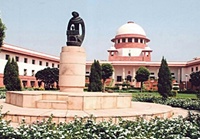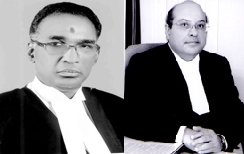SC strikes down Section 66A of IT Act as ‘unconstitutional’
24 Mar 2015
The Supreme Court today struck down the controversial Section 66A of the Information Technology Act, introduced in 2000, as being unconstitutional.
 The section has been widely misused by the central and particularly by state governments to stifle even the most innocuous online criticism, as it allowed the arrest of a person for posting ''offensive'' content.
The section has been widely misused by the central and particularly by state governments to stifle even the most innocuous online criticism, as it allowed the arrest of a person for posting ''offensive'' content.
Describing the law as "vague in its entirety," the judges said, it encroaches upon "the public's right to know".
The law had been challenged first by a law student named Shreya Singhal after two young women were arrested in 2012 for posting Facebook comments critical of the total shutdown in Mumbai after the death of Bal Thackeray, the Shiv Sena chief (See: FB arrests: SC issues notices to centre, five states).
The group that challenged the law in the Supreme Court expanded to include the NGO Common Cause and Bangladeshi writer Taslima Nasreen.
"Nobody should have fear of putting up something because of the fear of going to prison," said Ms Singhal, adding that hate speech could be dealt with under other laws that govern the internet.
The contention by most of the petitioners was that Section 66A is vague and allows the police arbitrary interpretation and misuse. The previous government, headed by the Congress, said that the law was necessary to combat abuse and defamation on the internet.
The new BJP government also defended the law in court.
Critics of the law said it was misused by political parties to target their opponents and dissidence. A professor in West Bengal was arrested in 2012 for posting a caricature of Chief Minister Mamata Banerjee, for example.
And even after the apex court had reserved its judgement in the matter on 26 February this year, another controversial case made headlines, where a class 11 student was arrested on 18 March for allegedly posting on Facebook objectionable comments against senior Samajwadi Party leader Azam Khan.
 Section 66A reads, "Any person who sends by any means of a computer resource any information that is grossly offensive or has a menacing character; or any information which he knows to be false, but for the purpose of causing annoyance, inconvenience, danger, obstruction, insult shall be punishable with imprisonment for a term which may extend to three years and with fine."
Section 66A reads, "Any person who sends by any means of a computer resource any information that is grossly offensive or has a menacing character; or any information which he knows to be false, but for the purpose of causing annoyance, inconvenience, danger, obstruction, insult shall be punishable with imprisonment for a term which may extend to three years and with fine."
Terming liberty of thought and expression as "cardinal", a bench of justices J Chelameswar and R F Nariman said, "The public's right to know is directly affected by section 66A of the Information Technology Act."
Justice Nariman, who pronounced the verdict in a packed court room, also said that the provision "clearly affects" the fundamental right to freedom of speech and expression enshrined under the Constitution.
Elaborating the grounds for holding the provision as "unconstitutional", it said terms like "annoying", "inconvenient" and "grossly offensive", used in the provision are vague as it is difficult for the law enforcement agency or the alleged offender to know the ingredients of the offence.
The bench also rejected the assurance given by NDA government during the hearing that certain procedures would be laid down to ensure that the law in question is not abused.
The government had also said that it will not misuse the provision.
"Governments come and go but Section 66A will remain forever," the bench said, adding the present government cannot give an undertaking about its successor that they will not abuse the same.
The bench, however, did not strike down two other provisions - sections 69A and 79 of the IT Act - and said that they can remain enforced with certain restrictions.
Section 69A provides power to issue directions to block public access of any information through any computer resource and 79 provides for exemption from liability of intermediary in certain cases.



















